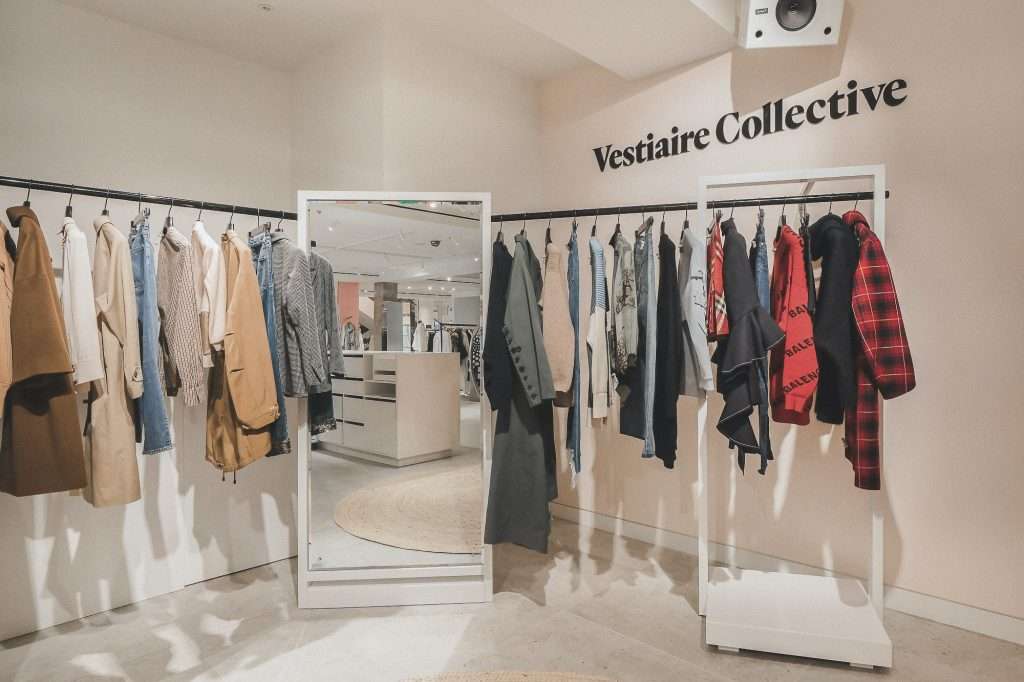As an investigation raises concerns about fast-fashion giant Boohoo’s business practices, secondhand platform Vestiaire Collective intensifies its efforts against fast-fashion with an expanded brand ban.
Following a BBC investigation that found evidence of Boohoo pressuring suppliers to reduce prices, even after agreements were finalized, the British retailer has come forward to address concerns.
The investigation involved an undercover reporter from BBC Television who worked for ten weeks at Boohoo’s Manchester headquarters as an administrative assistant, gathering insights into the company’s operations. The investigation brought to light the fashion retailer’s practices in dealing with its suppliers.
In a statement, a spokesperson for Boohoo acknowledged the challenges faced by the business due to cost inflation over the past year. The company stated that it had absorbed these increased costs to keep prices affordable for customers. “Like all businesses, we have experienced significant cost inflation over the last year, which we have absorbed in order to maintain affordable prices for customers,” the spokesperson said.

As the costs of raw materials, freight, and energy started to decrease, Boohoo says it requested its suppliers to adjust their pricing accordingly, offering discounts between one and ten percent. These savings were then passed on to customers, according to the spokesperson. The retailer’s supply chain practices also came under scrutiny in 2020 following allegations about poor working conditions and low pay in Leicester area factories. Boohoo accepted all recommendations from an independent review that identified major failings in its supply chain in England. The company pledged to address these issues through its “Agenda for Change” program.
Boohoo, which has partnered with Kourtney Kardashian on two collections, said it has made improvements, including enhancing the ethical and compliance obligations for its suppliers and regularly publishing a list of approved global manufacturers. “Boohoo has not shied away from dealing with the problems of the past and we have invested significant time, effort and resource into driving positive change across every aspect of our business and supply chain,” the spokesperson emphasized. “The action we’ve taken has already delivered significant change and we will continue to deliver on the commitments we’ve made,” they added.
It’s the latest blow against fast-fashion, which is continuing to lose ground as consumers, particularly Millennials and Gen Z, embrace more sustainable options like secondhand. Secondhand luxury platform Vestiaire Collective has taken a significant step in its campaign against fast fashion. The reseller has expanded its list of banned brands to include well-known names such as H&M, Zara, Uniqlo, Abercrombie & Fitch, Gap, and Urban Outfitters. This move is a part of the platform’s three-year plan to challenge the prevailing culture of overproduction and overconsumption in the fashion industry.

In November 2022, Vestiaire Collective initiated its strategy by removing products from fast fashion retailers including Boohoo, Pretty Little Thing, Asos, and Shein. The latest action signifies the second phase of this strategy and introduces new criteria to identify brands that fuel overproduction and overconsumption. These criteria include factors such as low price points, high renewal rates of collections, large product ranges, speed to market, and frequent sale promotions.
Dounia Wone, Vestiaire’s chief impact officer, expressed the company’s stance on the issue. “Fast fashion brands contribute to excessive production and consumption, resulting in devastating social and environmental consequences in the Global South. It is our duty to act and lead the way for other industry players to join us in this movement, and together we can have an impact,” Wone said in a statement.
Vestiaire Collective’s approach to defining fast fashion involved consultations with a committee of fashion and sustainability experts, including representatives from Fashion Revolution and The Or Foundation. This committee helped establish a clear definition of fast fashion, a term often regarded as vague.
But the move has also stirred controversy. By banning brands, it removes one potential channel for extending the life of fast fashion garments, critics say. But Vestiaire says that its aim is to deter consumers from purchasing low-quality or disposable garments, and helps to foster a marketplace that encourages quality and affordability.
The company is also committed to avoiding shifting the waste management responsibility to the Global South. It partners with The Or Foundation to raise awareness about global textile waste and advocate for policy changes to address the root causes of the problem.
To reinforce its message, Vestiaire Collective is launching a global campaign titled ‘Think First, Buy Second.’ This campaign includes AI-enhanced visuals of clothes piles in iconic locations of the Global North, simulating the accumulation of textile waste. The platform aims to encourage critical thinking about the impact of fashion choices and provide practical alternatives for managing fast fashion items.
“We could easily say that there is no perfect solution today because of infrastructure, because EPR [Extended Producer Responsibility] schemes don’t exist everywhere, for a lot of reasons,” says Wone. “But still, you upcycle, you repair it, you reduce what you throw away.”
Related on Ethos:


